Best Shampoos for Hair Loss: Stop Shedding and Start Growing
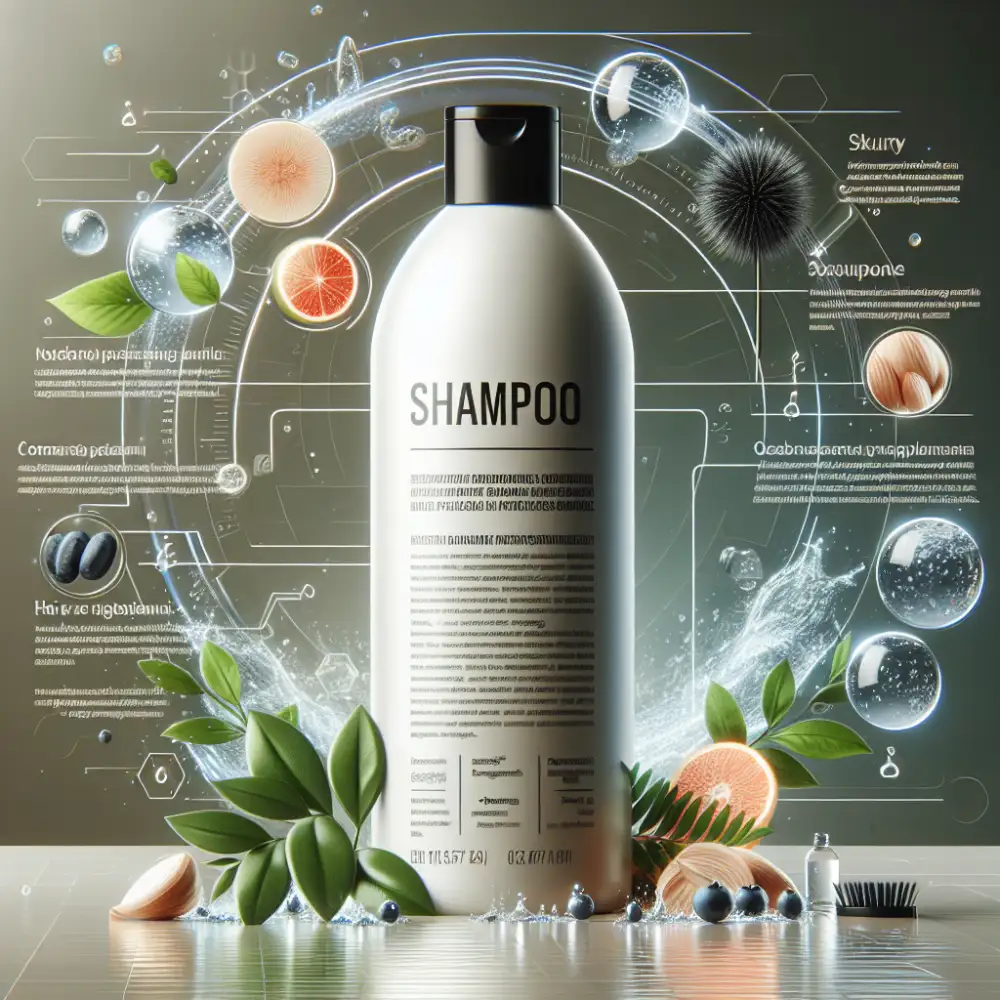
- Understanding Hair Loss
- Types of Hair Loss
- Ingredients to Look For
- How Shampoo Helps
- Choosing the Right Shampoo
- Using Shampoo Effectively
- Other Hair Care Tips
- When to See a Doctor
- Lifestyle Changes for Hair Health
- Myths About Hair Loss Shampoos
- Popular Hair Loss Shampoo Options
- Finding the Right Solution for You
Understanding Hair Loss
Hair loss, a common concern for many, can be triggered by various factors, from genetics and hormonal changes to stress and nutritional deficiencies. While the experience can be disheartening, understanding the science behind hair loss is the first step toward finding effective solutions.
Our hair grows in cycles, with each strand going through phases of growth, rest, and shedding. When the balance of this cycle is disrupted, it can lead to excessive shedding or thinning. This is where specialized products like shampoos formulated for hair loss come in. These shampoos often contain ingredients that address specific causes of hair loss.
For instance, some shampoos may include ingredients like saw palmetto or caffeine, which are believed to inhibit the effects of DHT, a hormone linked to hair loss. Others might focus on nourishing the scalp and hair follicles with vitamins and antioxidants, creating a healthier environment for hair growth.
While "champu para la caida del cabello" is simply the Spanish term for "shampoo for hair loss," it highlights the global prevalence of this concern and the demand for effective solutions. Whether you're exploring specialized shampoos or other hair loss treatments, it's essential to consult with a dermatologist or trichologist. They can help determine the underlying cause of your hair loss and recommend the most suitable course of action. Remember, addressing hair loss effectively often requires a multifaceted approach, combining the right products with lifestyle changes and, if necessary, medical intervention.
Types of Hair Loss
Hair loss, also known as alopecia, can manifest in various ways, each with unique characteristics and potential causes. Understanding the different types of hair loss is crucial when choosing a shampoo or treatment, like a champu para la caida del cabello (shampoo for hair loss in Spanish). Here are some common types:
Androgenic alopecia, often hereditary, affects both men and women. Men might experience a receding hairline or thinning at the crown, while women typically see diffuse thinning on the scalp.
Telogen effluvium is characterized by excessive shedding due to stress, hormonal changes, or illness. Hair follicles prematurely enter the resting phase, leading to noticeable hair loss.
Alopecia areata is an autoimmune disorder where the immune system attacks hair follicles, causing patchy hair loss on the scalp or body.
Traction alopecia occurs from prolonged tension or pulling on hair follicles, often due to tight hairstyles like braids or extensions.
Certain medical conditions, such as thyroid disorders or scalp infections, can also contribute to hair loss.
When selecting a shampoo for hair loss, consider the specific type you're experiencing. Look for products with ingredients that address your concerns, such as those that promote scalp health, strengthen hair follicles, or block DHT (a hormone linked to hair loss).
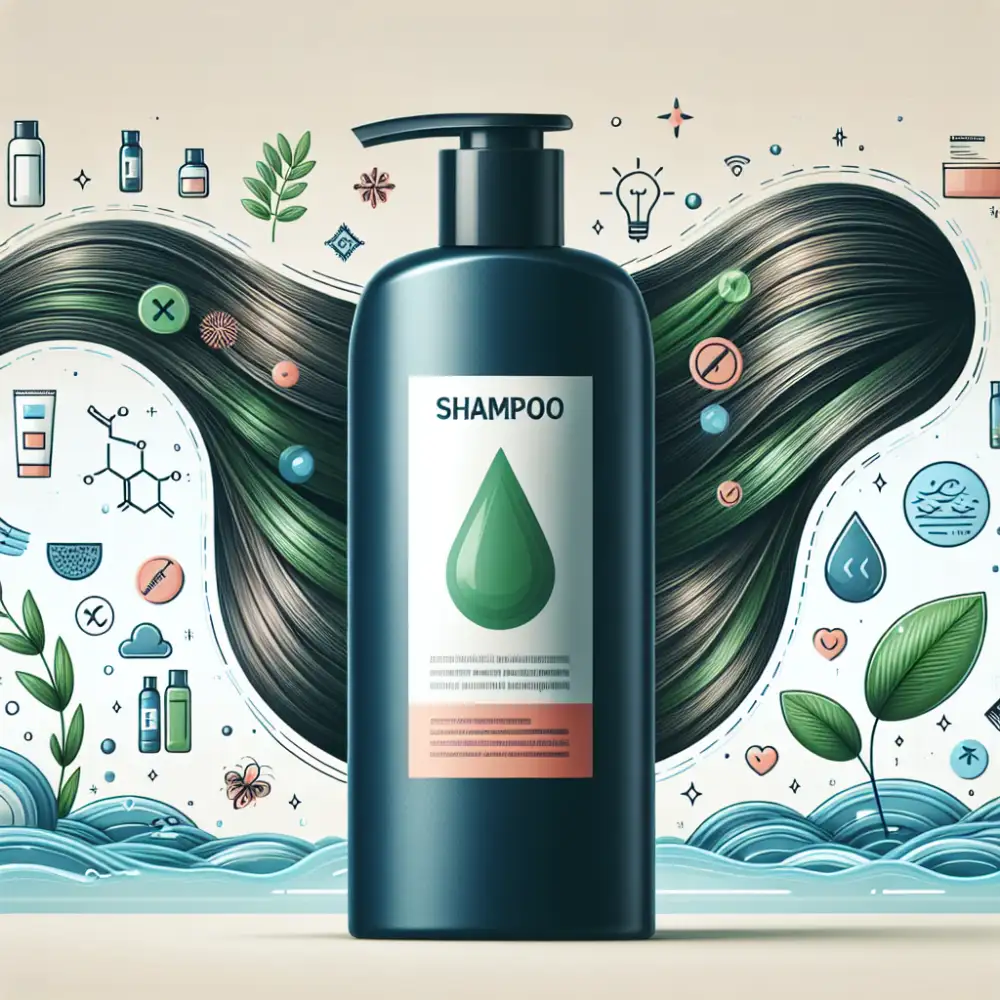
Ingredients to Look For
When battling hair loss, choosing the right shampoo is crucial. Look for ingredients scientifically proven to promote hair growth and combat hair loss. Biotin strengthens hair shafts and reduces breakage. Caffeine stimulates hair follicles and encourages growth. Saw palmetto blocks the production of DHT, a hormone linked to hair loss. Ketoconazole, an antifungal, can reduce scalp inflammation that contributes to hair loss. Rosemary oil improves circulation to the scalp, promoting hair growth. Niacin, a B vitamin, strengthens hair and improves blood flow to the scalp. Aloe vera soothes the scalp, reduces inflammation, and creates a healthy environment for hair growth. Green tea extract, rich in antioxidants, protects hair follicles from damage. Always check the ingredient list carefully, opting for shampoos free of sulfates, parabens, and silicones, which can be harsh and counterproductive to hair growth.
How Shampoo Helps
While there's no miracle cure in a bottle, the right shampoo can play a supportive role in addressing hair loss, especially when it's caused by factors like scalp buildup or product overuse. Here's how:
Think of your scalp as the soil for your hair. If the soil is clogged and unhealthy, your hair won't thrive. Shampoos designed for hair loss often focus on creating a healthy scalp environment. They do this by:
Removing buildup: Excess oil, dead skin cells, and product residue can accumulate on your scalp, clogging hair follicles and potentially hindering growth. Clarifying shampoos, often labeled as "purifying" or "detoxifying," can help remove this buildup.
Combating inflammation: An irritated or inflamed scalp can contribute to hair loss. Look for shampoos with soothing ingredients like aloe vera, chamomile, or tea tree oil.
Providing nourishment: Some shampoos are formulated with vitamins, minerals, and other nutrients that can strengthen hair follicles and promote a healthier scalp. Look for ingredients like biotin, niacin, or keratin.
It's important to remember that shampoo alone won't magically regrow hair. If you're experiencing significant hair loss, it's crucial to consult a dermatologist or trichologist to determine the underlying cause and discuss appropriate treatment options.
Choosing the Right Shampoo
Navigating the world of hair loss shampoos can feel overwhelming, especially when faced with terms like "champu para la caida del cabello." Don't worry, we'll break it down. "Champu para la caida del cabello" simply translates to "shampoo for hair loss" in Spanish. But finding the right one for you requires understanding your hair loss type and ingredients.
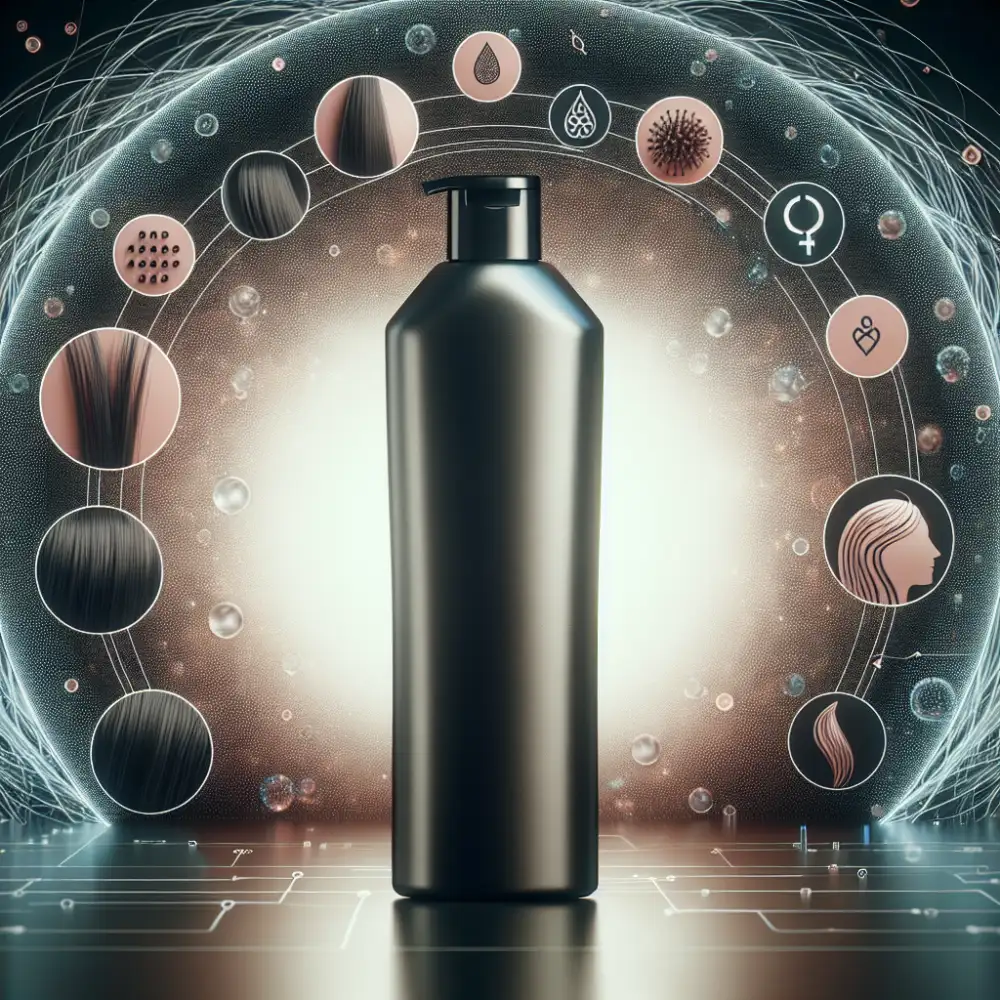
| Feature | Shampoo A | Shampoo B |
|---|---|---|
| Key Ingredient | Biotin & Collagen | Ketoconazole 1% |
| Target Hair Loss Type | Thinning hair, breakage | Dandruff-related hair loss |
| Average Price (USD) | $12.99 | $15.99 |
Start by identifying the cause of your hair loss. Is it genetics, stress, or something else? Different shampoos target different issues. For instance, shampoos with Minoxidil can be effective for androgenetic alopecia (male or female pattern baldness), while those with Ketoconazole might help with dandruff-related hair loss.
Next, look at the ingredients list. Natural ingredients like saw palmetto, biotin, and caffeine are popular for their potential to strengthen hair and stimulate growth. However, scientific evidence supporting their effectiveness can vary.
Remember, not all shampoos are created equal. Look for products backed by scientific research or clinical studies. Consider consulting a dermatologist or trichologist (hair specialist) for personalized recommendations. They can assess your scalp health, identify the root cause of your hair loss, and suggest the most effective shampoo for your specific needs.
Using Shampoo Effectively
Many individuals battling hair loss seek solace in specialized shampoos. These products, often labeled as "champu para la caida del cabello" in Spanish, aim to address various factors contributing to hair loss. However, simply using the shampoo isn't enough. To maximize its potential, it's crucial to understand how to use it effectively.
Start by choosing a shampoo specifically designed to address your type of hair loss and scalp condition. Look for ingredients like saw palmetto, biotin, or caffeine, known for their potential benefits in promoting hair growth and reducing hair loss. Before applying, thoroughly wet your hair with lukewarm water. Hot water can strip natural oils, exacerbating dryness and potentially leading to more breakage.
When applying the shampoo, gently massage it into your scalp using your fingertips. Avoid harsh scrubbing, as this can damage hair follicles. Allow the shampoo to sit on your scalp for the recommended time, usually a few minutes, to allow the ingredients to penetrate. Rinse thoroughly with lukewarm water, ensuring no residue remains.
Remember, consistency is key when using any hair loss treatment, including specialized shampoos. Use the product as directed, typically a few times a week, for optimal results. It's essential to manage expectations, as results can vary significantly depending on the individual and the underlying cause of hair loss. If you experience excessive hair loss or irritation, discontinue use and consult a dermatologist or trichologist. They can help determine the root cause of your hair loss and recommend the most effective treatment plan.
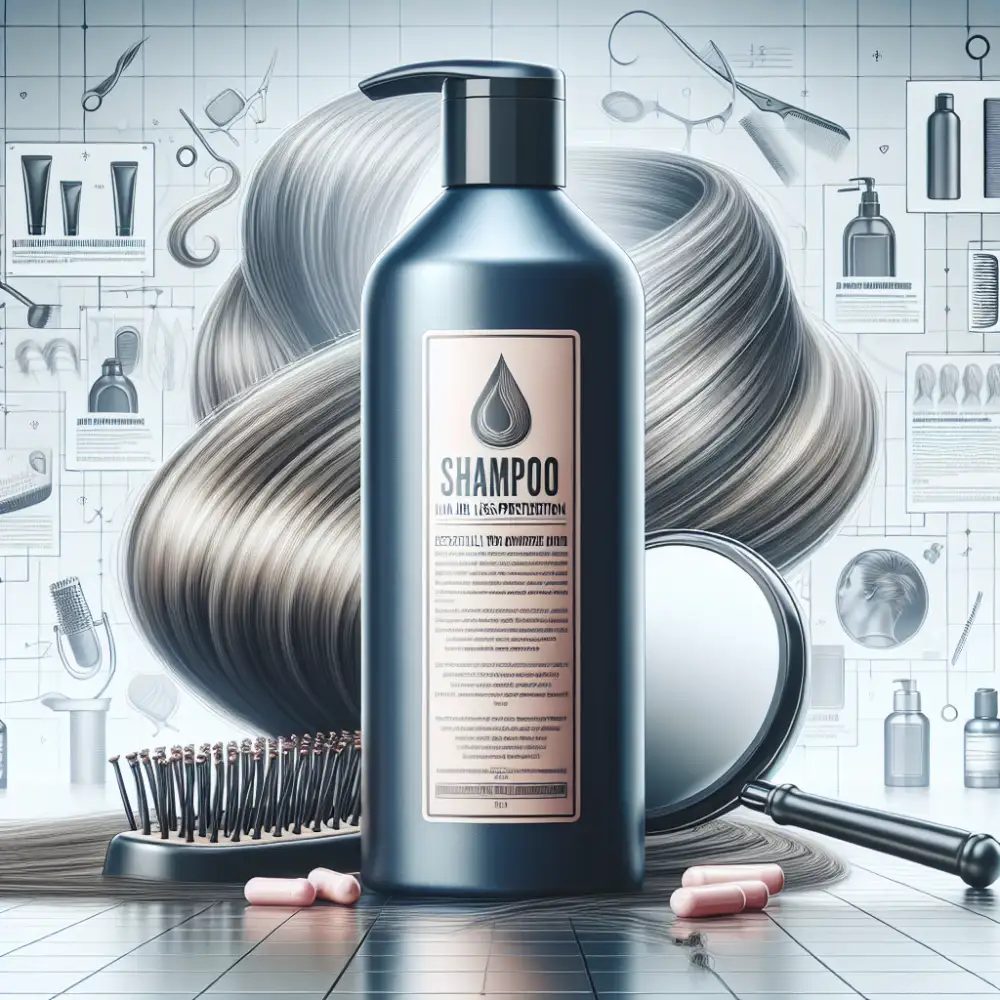
Other Hair Care Tips
While using the right shampoo is crucial, it's only one part of the puzzle. Here are some additional hair care tips to complement your hair loss shampoo routine:
Diet plays a vital role in hair health. Consume a balanced diet rich in protein, iron, zinc, and vitamins A, C, and D. Consider incorporating hair-friendly foods like eggs, spinach, salmon, and nuts into your meals.
Stress can contribute to hair loss. Explore stress-reducing techniques such as yoga, meditation, or spending time in nature.
Gentle styling is key. Avoid tight hairstyles that pull on the hair, as this can lead to breakage. Use a wide-tooth comb to detangle wet hair, starting from the ends and working your way up.
Heat styling can damage hair and exacerbate hair loss. Limit the use of heat styling tools like hair dryers, curling irons, and straighteners. If you must use heat, apply a heat protectant spray beforehand.
Scalp massages can improve blood circulation to the scalp, potentially promoting hair growth. Gently massage your scalp with your fingertips for a few minutes daily.
Be patient and consistent. It takes time to see results from any hair loss treatment, including shampoos. Use the product as directed and be consistent with your routine. If you have concerns about hair loss, consult a dermatologist or trichologist. They can help determine the underlying cause of your hair loss and recommend the best course of treatment for you.
When to See a Doctor
While shampoos can be helpful for maintaining scalp health and promoting hair growth, they are not a cure-all for hair loss. If you are experiencing significant hair loss or if your hair loss is accompanied by other symptoms, it's essential to consult a healthcare professional.
See a doctor if your hair loss is sudden or patchy, you are experiencing itching or burning sensations on your scalp, or you notice redness, scaling, or other unusual changes in your scalp's appearance. Additionally, if you are concerned about the emotional impact of your hair loss, don't hesitate to seek professional help.
Remember, addressing the underlying cause of your hair loss is crucial for effective treatment. A healthcare professional can help determine the root cause of your hair loss and recommend the most appropriate course of action, which may include lifestyle modifications, medications, or other therapies.
Lifestyle Changes for Hair Health
While the right shampoo can play a crucial role in minimizing hair loss, it's not a magic solution. Think of it as part of a bigger picture that involves your overall lifestyle. What you put into your body directly affects your hair health. A diet rich in protein, iron, zinc, and vitamins is essential. Think lean meats, fish, eggs, leafy greens, and nuts. Staying hydrated is equally important, so drink plenty of water throughout the day.
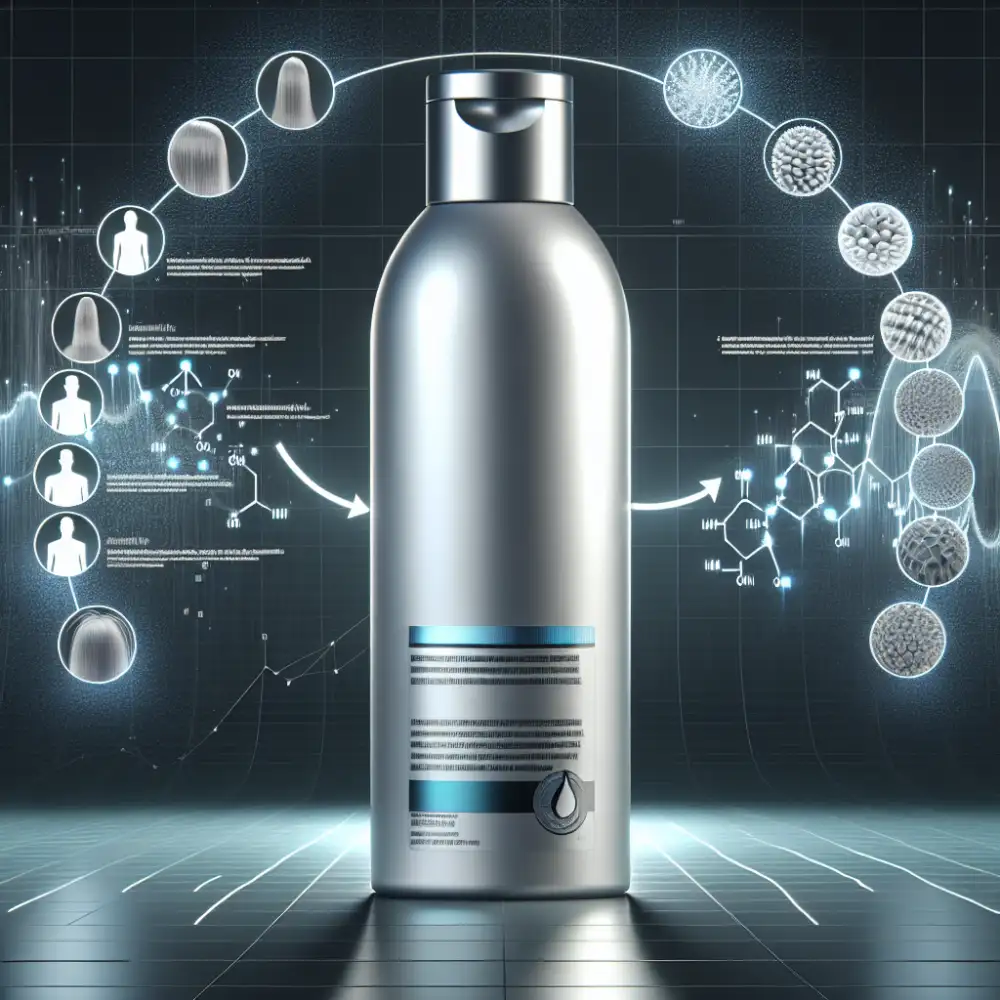
Stress can be a major contributor to hair loss. Incorporate stress-reducing activities into your routine, like yoga, meditation, or simply taking time for yourself. Don't underestimate the power of a good night's sleep. When you're sleep-deprived, your body produces more of the stress hormone cortisol, which can impact hair growth. Aim for 7-9 hours of quality sleep each night. If you're using styling products or heat styling tools regularly, consider cutting back. These can damage your hair and contribute to breakage. If you're concerned about hair loss, it's always a good idea to consult with a dermatologist or trichologist. They can help determine the underlying cause and recommend the best course of action for you.
Myths About Hair Loss Shampoos
There are many misconceptions surrounding shampoos for hair loss, often fueled by marketing tactics and anecdotal evidence. Let's debunk some of these common myths:
Myth: Hair loss shampoos can regrow hair.
Fact: While some shampoos contain ingredients that may promote a healthy scalp environment, they cannot reverse hair loss conditions like androgenetic alopecia (male or female pattern baldness). These shampoos primarily work by cleansing the scalp, reducing breakage, and potentially creating an optimal environment for existing hair to thrive.
Myth: All hair loss shampoos are created equal.
Fact: The effectiveness of a hair loss shampoo depends on its ingredients and the underlying cause of your hair loss. Some shampoos target specific issues like dandruff or scalp buildup, which can contribute to hair loss, while others contain ingredients like minoxidil or ketoconazole that may have some clinical evidence for slowing down hair loss.
Myth: You'll see results immediately.
Fact: Hair growth is a slow process. It's unrealistic to expect immediate results from any hair loss treatment, including shampoos. It's essential to be patient and consistent with your routine. It may take several weeks or even months to notice any visible changes.
Myth: Hair loss shampoos are only for people experiencing hair loss.
Fact: Using a shampoo formulated for hair loss can be beneficial even if you're not actively losing hair. These shampoos often contain ingredients that promote scalp health, strengthen hair strands, and add volume, which can be beneficial for everyone.
Myth: Hair loss shampoos are expensive.
Fact: While some specialized hair loss shampoos can be pricey, many affordable options are available. Remember, the most expensive option isn't necessarily the most effective. It's crucial to choose a shampoo that addresses your specific needs and budget.
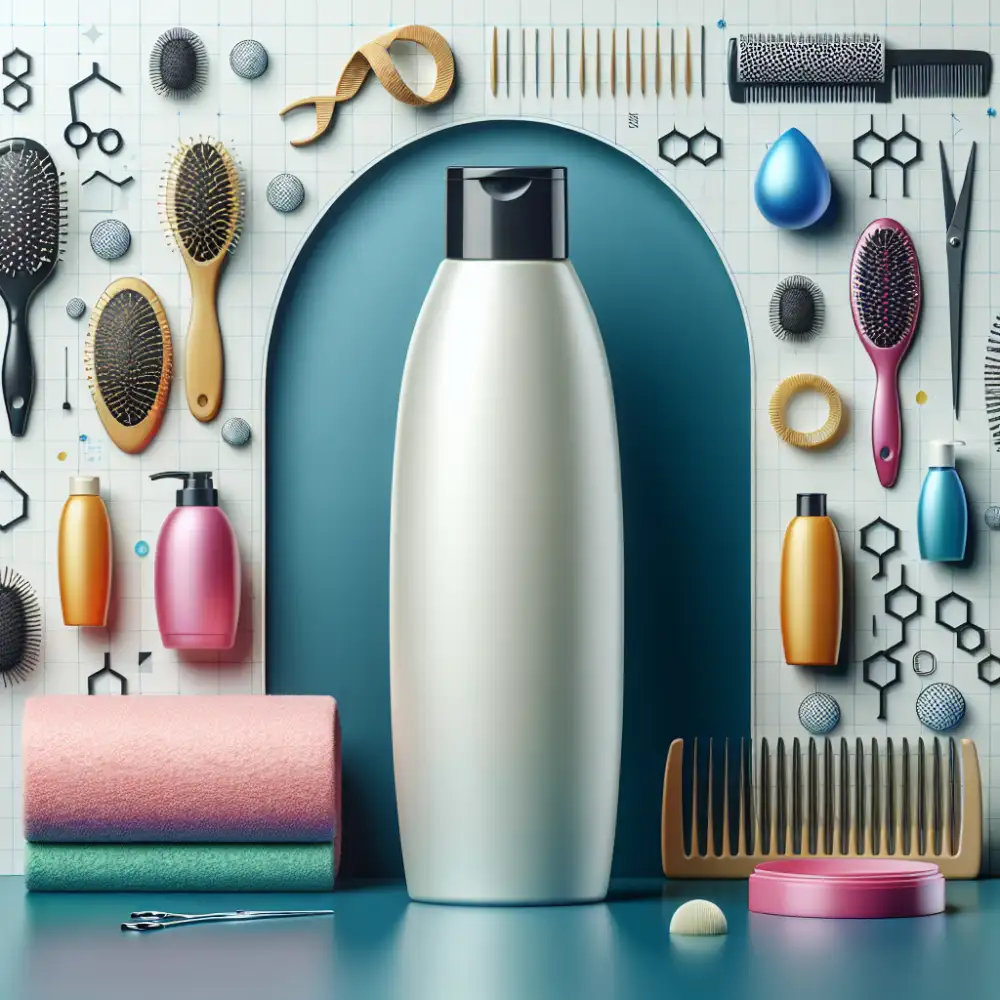
Remember, it's always best to consult with a dermatologist or trichologist to determine the underlying cause of your hair loss and receive personalized recommendations for treatment options, including shampoos.
Popular Hair Loss Shampoo Options
Many shampoos on the market claim to combat hair loss, but not all are created equal. Here's a look at some popular options:
Ketoconazole Shampoos: Often marketed under brand names like Nizoral, ketoconazole shampoos are antifungal and can help with dandruff and certain types of hair loss. They're available over-the-counter and by prescription.
Minoxidil Shampoos: Minoxidil is a medication clinically proven to stimulate hair growth. While more commonly known as a topical solution, minoxidil shampoos can be a convenient option for some.
Saw Palmetto Shampoos: Derived from a type of palm tree, saw palmetto is believed to block the conversion of testosterone to DHT, a hormone linked to hair loss.
Biotin Shampoos: Biotin is a B vitamin essential for hair growth. While more research is needed, some people find that biotin shampoos improve hair thickness and strength.
Caffeine Shampoos: Some studies suggest caffeine may promote hair growth by counteracting the effects of DHT.
Remember, finding the right shampoo for hair loss is a personal journey. What works for one person may not work for another. It's always best to consult with a dermatologist or trichologist to determine the underlying cause of your hair loss and receive personalized recommendations. They can guide you toward the most effective treatments, including shampoos, medications, or procedures.
Finding the Right Solution for You
Choosing the right shampoo for hair loss can feel overwhelming with so many options available. The first step is identifying what's causing your hair loss. Is it genetics, stress, hormonal changes, or something else? Once you have a better understanding of the cause, you can narrow down your shampoo choices.
Look for shampoos with ingredients clinically proven to combat hair loss, such as minoxidil or finasteride. These ingredients can help slow down or even stop hair loss and promote regrowth. Other helpful ingredients include biotin, keratin, and saw palmetto.
Consider your hair type and scalp condition too. If you have a sensitive scalp, opt for a fragrance-free and hypoallergenic formula. For oily scalps, look for clarifying shampoos that remove excess oil without stripping natural moisture. Dry scalps benefit from moisturizing shampoos with hydrating ingredients like aloe vera or argan oil.
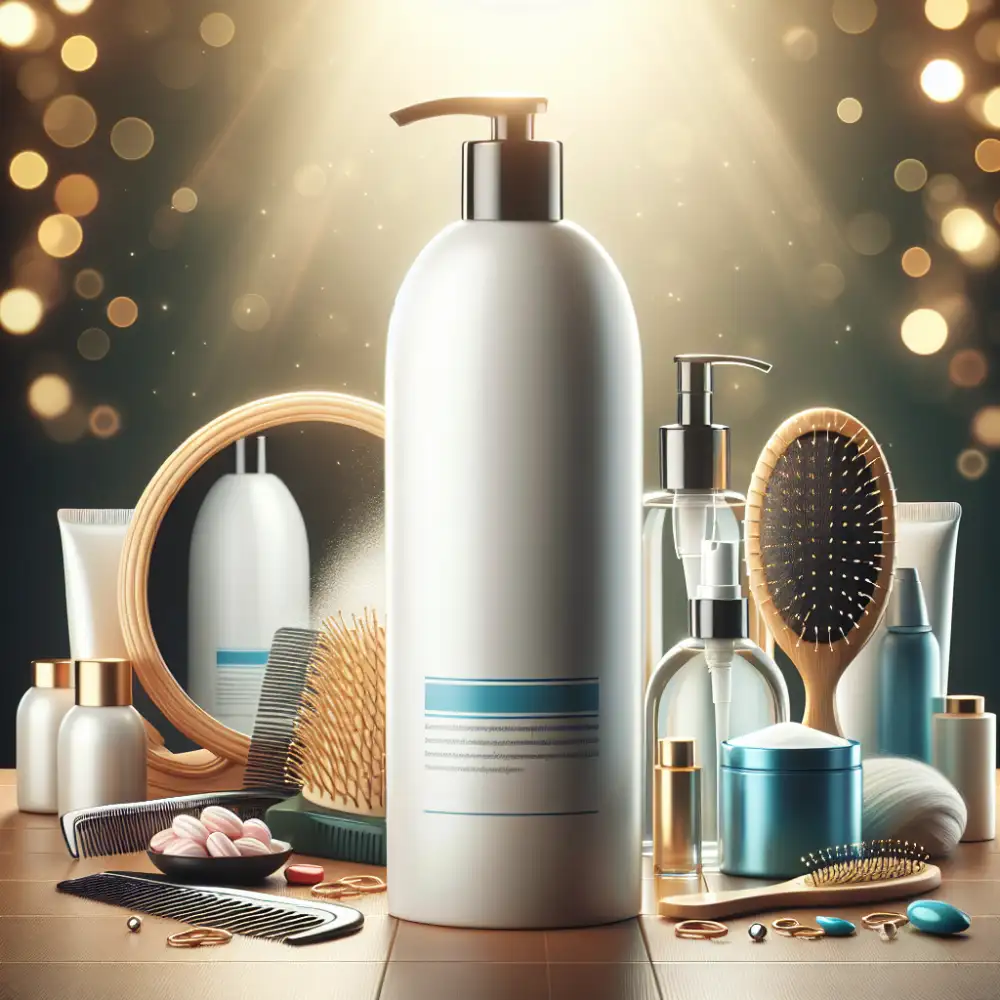
Remember, no single shampoo works for everyone. It might take some trial and error to find the perfect fit for your needs. Be patient, and don't hesitate to consult a dermatologist or trichologist for personalized advice if you're struggling with hair loss.
Published: 09. 07. 2024
Category: Food



